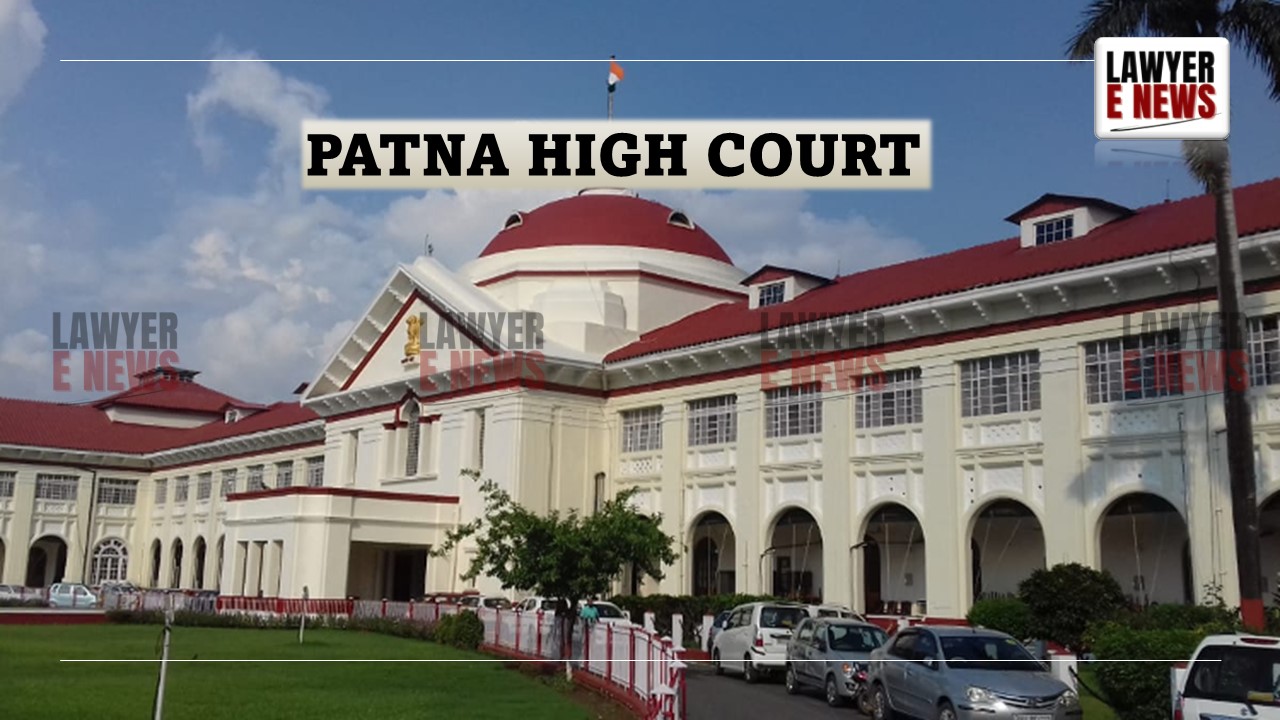-
by Admin
15 February 2026 2:36 AM



“Judicial orders of civil courts are not amenable to writ jurisdiction under Article 226 of the Constitution.” – Justice Mohit Kumar Shah. The case involved Niharika Nisha, who filed a writ petition challenging a maintenance order from the Family Court. The petitioner, Niharika Nisha, argued that the maintenance sum of Rs. 2,500 per month, set by the Family Court in Matrimonial (Divorce) Case No. 18 of 2015, was "shockingly low" given her husband's monthly income of approximately Rs. 80,000. The petitioner sought relief under Article 227 of the Constitution, asking the Patna High Court to review the lower court’s decision. The respondent, Awadhesh Kumar, a resident of Bokaro, Jharkhand, was her estranged husband, from whom she was seeking the increased maintenance amount.
The key legal question before the court was whether the High Court could intervene in a family court’s maintenance order through its writ jurisdiction. The petitioner sought the High Court's intervention under Article 227, arguing that the Family Court had fixed a disproportionately low maintenance amount, despite her husband’s considerable monthly income. The court was asked to decide if such judicial orders could be contested through a writ petition.
Justice Mohit Kumar Shah, delivering the oral judgment, noted that judicial orders from civil courts are not subject to writ jurisdiction under Article 226. However, they could be reviewed under Article 227, which grants supervisory jurisdiction to the High Court over subordinate courts. The court referenced the Supreme Court's ruling in Radhey Shyam v. Chhabi Nath (2015), which explicitly states that judicial orders of civil courts, like maintenance orders from family courts, cannot be challenged via Article 226.
The court also clarified that Article 227 is intended for supervision, not for re-litigating decisions. It further emphasized that while the petition in question sought the court’s intervention based on the perceived inadequacy of the maintenance sum, such challenges must adhere to the correct legal process.
The ruling relied heavily on Radhey Shyam v. Chhabi Nath (2015), which delineates the boundaries between Articles 226 and 227 of the Constitution. The court reiterated that Article 227 provides supervisory jurisdiction over subordinate courts but is not intended to replace the appeal or revision mechanisms already provided under civil law. The Patna High Court further referred to amendments in its own procedural rules, which direct that petitions challenging civil court orders must be filed as Civil Miscellaneous Petitions.
In light of these observations, the court granted the petitioner four weeks to convert her writ petition into a Civil Miscellaneous Petition. The registry was directed to assist in expediting this process, noting that the case had already been pending for over eight years. By following this procedural correction, the petitioner could have her case reviewed in accordance with the proper legal framework under Article 227.
The court's judgment reinforces the importance of procedural accuracy when challenging civil court orders. The decision underscores the distinct roles of Articles 226 and 227, and it may guide future litigants in ensuring they follow the appropriate judicial routes when seeking relief in civil and matrimonial disputes. Furthermore, it provides clarity on the correct jurisdictional approach for maintenance-related matters, signaling the importance of adhering to civil procedural law in such cases.
Date of Decision: September 9, 2024
Niharika Nisha v. Awadhesh Kumar
Representing Advocates:
Mr. Shyameshwar Kumar Singh for the petitioner
